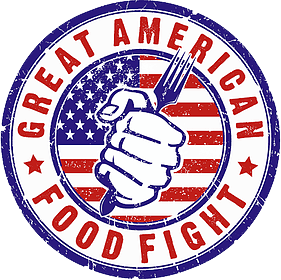Antibiotics
80% of the antibiotics sold in the US go to treat animals, not people. These drugs are used to promote fast growth for market and to prevent diseases caused by the overcrowded, unsanitary conditions in which these animals are raised.

This massive dosing of sub-therapeutic levels of antibiotics to animals has increased human exposure to pathogens through the food supply and led to the emergence “superbugs” which cause immense suffering and death.
The number of cases of antibiotic-resistant infections (ABRs) has more than doubled over the last past decade, costing the US healthcare system over $20 billion annually, and already killing more Americans each year than AIDS.In addition to morbidity and mortality caused by infections with resistant pathogens, we must also pay for the development of new antibiotics to keep pace with continually evolving pathogens.
New evidence has definitively confirmed the transfer of antibiotic-resistant bacteria from animals to humans. And there’s good reason to believe that the antibiotics used to fatten our food animals are making us fat, too.
Ending the involuntary dosing of Americans with antibiotics may well be the most critical battle in the Great American Food Fight.
Antibiotics – continued
Animals treated with sub-therapeutic doses of antibiotics gain much more weight than they otherwise would and those extra pounds mean extra profit for producers. The practice, however, has long raised concerns about serious health risks and human drug resistance.
In the 1970s, the FDA asked producers to show that their use of penicillin and tetracycline caused no harm to humans. When they couldn’t, the agency banned the use of the drugs in animals. But under pressure from the drug and animal industries, Congress stepped in and ordered the FDA not to implement the ban.
In 1999, and again in 2005, petitions were filed by the Center for Science in the Public Interest, Environmental Defense, the American Academy of Pediatrics, the American Public Health Association, Food Animal Concerns Trust (FACT), and the Union of Concerned Scientists. Both petitions had asked the agency to withdrawal its approval of certain antimicrobial drugs that are considered important for human medicine.In June 2010, the FDA finally admitted that antibiotics in meat pose a “serious public health threat,” but despite this admission, the agency denied both petitions. Instead, the agency asked producers to voluntarily use the drugs “judiciously” with the oversight of a veterinarian.In 2011, the agency asked pharmaceutical companies to voluntarily reduce sales of antibiotics for use in food animals. The industry response? Sales of the two most commonly used antibiotics in livestock and poultry increased for the second consecutive year.
For a vast number of scientists, health experts, and public interest groups, saying “pretty please” to livestock producers and drug companies is just not enough. Legislation is now in Congress that would address this problem and hundreds of groups, including the American Medical Association, American Academy of Pediatricians, Infectious Diseases Society of America, the American Nurses Association and the World Health Organization, are supporting it.The Preservation of Antibiotics for Medical Treatment Act (PAMTA, H.R. 965, S. 1211) would withdraw the routine use of seven classes of antibiotics vitally important to human health from food animal production unless the animals are sick or unless drug companies can prove that their use does not harm human health.
Putting an end to the involuntary dosing of meat-eating Americans with antibiotics may well be the most critical battle in the Great American Food Fight. This is an avoidable national health crisis, but the FDA refuses to act.
Articles & Research
Research For Fighting Back
Alliance for the Prudent Use of Antibiotics
Nonprofit associated with Tufts University whose mission is to strengthen society’s defenses against infectious disease by promoting appropriate access and use of antimicrobial agents
AWARE
California medical alliance working to reduce the unnecessary use of antibiotics and the prevalence of antibiotic resistant bacteria
Center for Science in the Public Interest
(CSPI) Public interest advocacy organization that emphasizes the importance of nutrition and food safety; this section describes an antibiotic resistance project including both human and animal use of antibiotics.
Environmental Working Group
The nation’s leading environmental health research and advocacy organization.
Keep Antibiotics Working (KAW)
Coalition of public health, environmental, consumer, and agricultural advocacy groups focused on combating overuse of antibiotics in agriculture.
Not in My Food
Food safety arm of Consumer’s Union
Union of Concerned Scientists (UCS)
Alliance of citizens and scientists working to solve our planet’s most pressing problems. This section describes the use of antibiotics in agriculture and PAMTA, the proposed ban on nontherapeutic agricultural use
Pew Campaign on Human Health and Industrial Farming
Pew Charitable Trust campaign working to preserve the effectiveness of antibiotics by phasing out the overuse and misuse of the drugs in food animal production.
More Links & News
Are Antibiotics Making Us Fat?
Dr. Paul Specter Huffington Post, Nov. 7, 2012
Big Ag Washes its Hands of Responsibility
Report: Suberbug Dangers in Chicken Linked to 8 Million at Risk Women, ABC News, July 11, 2012
Yes, Antibiotic-Resistant Bugs Can Jump from Animals to Humans
Take a Flyer to Trader Joe’s!
Urge Trader Joes to be a fearless leaders know a little more about you.


